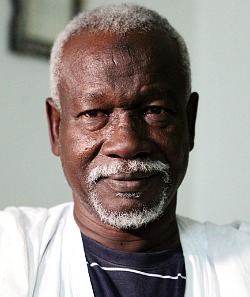 The Islamic Republic of Mauritania ,by population size, is a small desert country located at Northwestern Africa in a region popularly known as "Maghreb" which consists of 5 Islamic nations (Morocco, Libya, Mauritania, Tunisia and Algeria).
The Islamic Republic of Mauritania ,by population size, is a small desert country located at Northwestern Africa in a region popularly known as "Maghreb" which consists of 5 Islamic nations (Morocco, Libya, Mauritania, Tunisia and Algeria).
The Islamic Republic of Mauritania borders the North Atlantic Ocean (in the west) between the Republic of Senegal in the Southwest and the often disputed region of Western Sahara (which is mostly controlled by Morocco) in the north. The Islamic Republic of Mauritania also shares borders with the Republic of Algeria in the northeast and the Republic of Mali in the east and southeast.
The Islamic Republic of Mauritania has a total land area of about 1,030,700sq km 0% of which is covered by water. Just about 0.2% of the total land area of Mauritania is arable (Land that can be used for farming). The remaining land area is covered by desert.
Islamic Republic of Mauritania has a total population of about 3.4 million people with the population growth rate around 2.3%. Majority of the Mauritanian population live in major cities and towns such as Nouakchott the capital of Mauritania
(Nouakchott contains about 800,000 people) and Nouadhibou where the population is highly concentrated compared to other parts of the country. Major part of the population also live along the Senegal River (which is the only perennial river in Mauritania) in the southern part of the country.
There are 3 major racial groups living in Mauritania today. Blacks form about 30% of the total population. Moors form about 30% with the remaining 40% being mostly Black-Moor Mixed population. Although Arabic is the official language, several other languages including French, Pulaar, Hassaniya, Soninke and Wolof are spoken in Mauritania today. The Islamic Republic of Mauritania is one of the most Islam-dominant countries in the world with almost 100% Islamic population. Although a desert land, the Islamic Republic of Mauritania is blessed with abundance of natural resources such as fish, gold, oil, copper, iron ore, phosphate, gypsum and diamond.
Slavery, racism and discrimination remain major problems in Mauritania today. The Moors control almost everything in Mauritania and in some cases take Blacks and Mixed people as slaves. Although slavery has been abolished in Mauritania, the Mauritanian government does nothing to enforce the laws why because the government considers slavery part of the everyday Islamic culture of Mauritania. In other words, The Islamic Republic of Mauritania silently practices Slavery in this modern world and most Mauritanians consider slavery a normal part of their everyday Islamic culture and traditions. In this age of science and technology, Mauritania often appears a "first century" country to an outsider with some of these barbaric traditions. The crazy "force-fed" tradition whereby young girls are force-fed to fatten them (until they become obese) for the sake of beauty and marriage, is still practiced in Mauritania today.
Illiteracy remains a major problem in Mauritania today. Mauritanian has a literacy rate of just 51.2% for the entire population with the female literacy rate around 43.4%. In other words, about half of the total population of Mauritania above age 15 cannot even read and write which is very bad compared to most other African countries.
Drought remains a major problem in Mauritania today. There are scarcity/limited natural freshwater sources as you move away from the Senegal River. Overgrazing, deforestation, locust infestation, soil erosion and desertification remain major problems throughout Mauritania.
Although somehow "spared" by the deadly HIV/AIDS ,about 14,000 people were living with HiV/AIDS in 2009 with about 1000 deaths recorded within the same year. Mauritania has HIV/AIDS adult prevalence rate of 0.7%. Besides HIV/AIDS, the rift valley fever , typhoid fever, rabies, bacterial and protozoal diarrhea, malaria, etc. continue to threaten several lives in Mauritania today.
